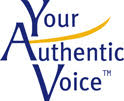 What do I do when my foot starts hurting while I’m doing my physical therapy exercises? Is that normal pain or something to be concerned about? How do I know? What’s the answer? Those are questions I’ve asked myself over the last couple of months because this is a new adventure for me. I don’t have any experience to base my answers on.
What do I do when my foot starts hurting while I’m doing my physical therapy exercises? Is that normal pain or something to be concerned about? How do I know? What’s the answer? Those are questions I’ve asked myself over the last couple of months because this is a new adventure for me. I don’t have any experience to base my answers on.
This kind of scenario plays out for most of us every day because our world is changing so fast. We have to make choices quickly without the benefit of experience. This can be uncomfortable, or terrifying, depending on the situation. Whether you’re considering taking that job, marrying your sweetheart, or becoming a motivational speaker, how do you know what to do? By listening.
Okay, I imagine you’re thinking, I know that. Of course you do. So do I. The question is, do we really do that, and with consistency? Is listening the first thing we do, or the last? There’s an old saying, “If someone doesn’t want to know, you can’t tell ‘em.” I know that’s been me sometimes, especially if I’m just tired of dealing with the situation.
I recently encountered a comment from an audience member that set my hair on fire. After spending an hour and a half sharing how powerfully persuasive stories can be and providing research that backs that up, one of my audience members said, “I think people just want you to get to the point. I don’t think you need to do all that. It just wastes time.”
Ugh. I don’t know, but I just couldn’t “listen” to that comment. I said to him, “You’d think that, but it’s not true. It’s like you’re giving away the punch line without the joke.” I shut him down.
I immediately knew I hadn’t responded well, and I did it in front of a room full of people. Suffice it to say, that didn’t go over. Not with him, and not with the others in the audience. (It doesn’t matter how much experience you have, you can still make a mistake.)
Instead of listening to what this gentleman said and addressing his concerns, I reacted based on my own frustration and irritation, and I experienced the consequences. Sometimes this is how we learn to make listening a priority.
So that you might bypass this lesson, or at least not repeat it, here are a few thoughts about listening to consider so you can ignite your success!
1. Be aware of the type of listening you’re using. Listening takes different forms. C. Otto Scharmer shared four types of listening in his book, Theory U. Learning how to recognize when we’re doing which type of listening can help us orient ourselves and respond successfully. They are:
- Yeah, I know that already. We’re downloading and reconfirming habitual judgments — what we already know.
- Ooh, look at that! This is object-focused, factual listening. We’re looking for what differs from what we already know. This is the foundation of science.
- Oh yes, I know how you feel. This is empathic listening. We are engaged in real dialogue, becoming aware of a profound shift in the place from which our listening originates. We activate a special instrument – the open heart. We forget about our own agenda and begin to see the world through someone else’s eyes.
- I can’t express what I experience in words. This is generative listening. Our whole being has slowed down. We feel more quiet and present and more our real selves. We are connected to something larger than ourselves — a deeper realm. We get out of the way so something new can manifest.
2. Experiment with listening to your intuition. The next time you don’t know what to do, stop what you’re doing and take a few deep breaths. Get present by paying attention to your senses, one by one. Invite your intuition to give you the answer and discover what you “know” to be true for you. Then take action based on the answer. Start with small stuff to test it out and so you don’t set yourself up for undesirable consequences.
3. Settle in and listen without interrupting. Enjoy being present to someone else. Give this gift of attention. One thing I learned long ago: if you listen deeply to someone else, they think you’re brilliant! The occasional “hmmm” or “uh huh” is all that is required. When the person has stopped talking, if you need to respond, take a few breaths first. This gives you the time to make sure you’re not on autopilot but communicating with the awareness of what you want to create.
The more you practice deep listening, the more you will ignite your success in whatever endeavor you choose. When we listen, we learn. This takes practice. Yes, you’ll still make mistakes. That’s okay. You’ll always have another chance! I’d love to support you. You can reach me at andrea@andreabeaulieu.com

Leave A Comment